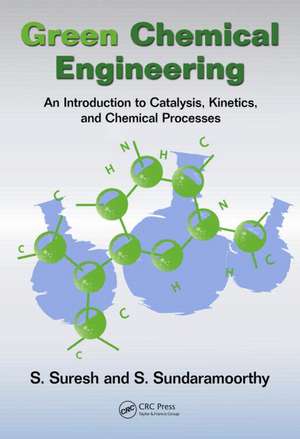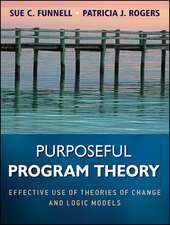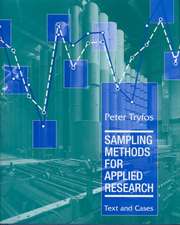Green Chemical Engineering: An Introduction to Catalysis, Kinetics, and Chemical Processes
Autor S. Suresh, S. Sundaramoorthyen Limba Engleză Hardback – 18 dec 2014
Focused on practical application rather than theory, the book integrates chemical reaction engineering and green chemical engineering, and is divided into two sections. The first half of the book covers the basic principles of chemical reaction engineering and reactor design, while the second half of the book explores topics on green reactors, green catalysis, and green processes. The authors mix in elaborate illustrations along with important developments, practical applications, and recent case studies. They also include numerous exercises, examples, and problems covering the various concepts of reaction engineering addressed in this book, and provide MATLAB® software used for developing computer codes and solving a number of reaction engineering problems.
Consisting of six chapters organized into two sections, this text:
- Covers the basic principles of chemical kinetics and catalysis
- Gives a brief introduction to classification and the various types of chemical reactors
- Discusses in detail the differential and integral methods of analysis of rate equations for different types of reactions
- Presents the development of rate equations for solid catalyzed reactions and enzyme catalyzed biochemical reactions
- Explains methods for estimation of kinetic parameters from batch reactor data
- Details topics on homogeneous reactors
- Includes graphical procedures for the design of multiple reactors
- Contains topics on heterogeneous reactors including catalytic and non-catalytic reactors
- Reviews various models for non-catalytic gas–solid and gas–liquid reactions
- Introduces global rate equations and explicit design equations for a variety of non-catalytic reactors
- Gives an overview of novel green reactors and the application of CFD technique in the modeling of green reactors
- Offers detailed discussions of a number of novel reactors
- Provides a brief introduction to CFD and the application of CFD
- Highlights the development of a green catalytic process and the application of a green catalyst in the treatment of industrial effluent
Preț: 748.61 lei
Preț vechi: 996.91 lei
-25% Nou
Puncte Express: 1123
Preț estimativ în valută:
143.27€ • 149.02$ • 118.27£
143.27€ • 149.02$ • 118.27£
Carte tipărită la comandă
Livrare economică 12-26 aprilie
Preluare comenzi: 021 569.72.76
Specificații
ISBN-13: 9781466558830
ISBN-10: 1466558830
Pagini: 546
Ilustrații: 193 black & white illustrations, 23 black & white tables
Dimensiuni: 178 x 254 x 33 mm
Greutate: 1.13 kg
Ediția:1
Editura: CRC Press
Colecția CRC Press
ISBN-10: 1466558830
Pagini: 546
Ilustrații: 193 black & white illustrations, 23 black & white tables
Dimensiuni: 178 x 254 x 33 mm
Greutate: 1.13 kg
Ediția:1
Editura: CRC Press
Colecția CRC Press
Cuprins
Introduction. Section I Kinetics, Catalysis and Chemical Reactors. Introduction to Kinetics and Chemical Reactors. Homogeneous Reactors. Heterogeneous Reactors. Section II Green Chemical Processes and Applications. Green Reactor Modelling. Application of Green Catalysis and Processes. References. Further Reading. Index.
Notă biografică
Suresh Sundaramurthy is an assistant professor of chemical engineering at Maulana Azad National Institute of Technology, Bhopal, India. He holds a PhD from Indian Institute of Technology, Roorkee, India, in the area of environmental pollution control. He has held various research positions at a number of universities in India including Pondicherry University, Indian Institute of Technology Kanpur, and International Centre for Materials Science, JNCASR, Bangalore. His research interests are in the areas of separation processes, reactor design, adsorption, catalysis, waste utilization, and nanomaterials. He has written a number of research articles and books in his area of research.
Sundaramoorthy Sithanandam is a professor of chemical engineering at Pondicherry Engineering College, Puducherry, India. He obtained his PhD from Indian Institute of Technology Madras, India, in the area of process control. He has over 28 years of teaching and research experience. He has held teaching and visiting research positions, respectively, at National Institute of Technology Karnataka, Surathkal, and National University of Singapore. His research interests are in the areas of model-based predictive control, membrane separations, process integration, and optimization. He has published many research articles and has delivered a number of keynote and invited lectures in international and national conferences.
Sundaramoorthy Sithanandam is a professor of chemical engineering at Pondicherry Engineering College, Puducherry, India. He obtained his PhD from Indian Institute of Technology Madras, India, in the area of process control. He has over 28 years of teaching and research experience. He has held teaching and visiting research positions, respectively, at National Institute of Technology Karnataka, Surathkal, and National University of Singapore. His research interests are in the areas of model-based predictive control, membrane separations, process integration, and optimization. He has published many research articles and has delivered a number of keynote and invited lectures in international and national conferences.
Recenzii
"The use of modern computational tools in problem solving has given an entirely different dimension to this book, which makes it stand out from others."
—M. B. Saidutta Ph.D, NITK, Surathkal
"The book is very apt for both undergraduate and postgraduate chemical engineering curriculum. The book provides special emphasis on computer aided solution approaches and also introduces the readers to some state of-the-art chemical engineering modeling software."
—Prakash Kotecha, Department of Chemical Engineering, IIT Guwahati
—M. B. Saidutta Ph.D, NITK, Surathkal
"The book is very apt for both undergraduate and postgraduate chemical engineering curriculum. The book provides special emphasis on computer aided solution approaches and also introduces the readers to some state of-the-art chemical engineering modeling software."
—Prakash Kotecha, Department of Chemical Engineering, IIT Guwahati
Descriere
This book details the principles and concepts of chemical reaction engineering applied to the design of green processes and reactor design fundamentals. It covers fundamentals of kinetics and heterogeneous catalysis to large-scale industrial processes via theoretical models and experimental results aided by tools such as MATLAB and FLUENT.












